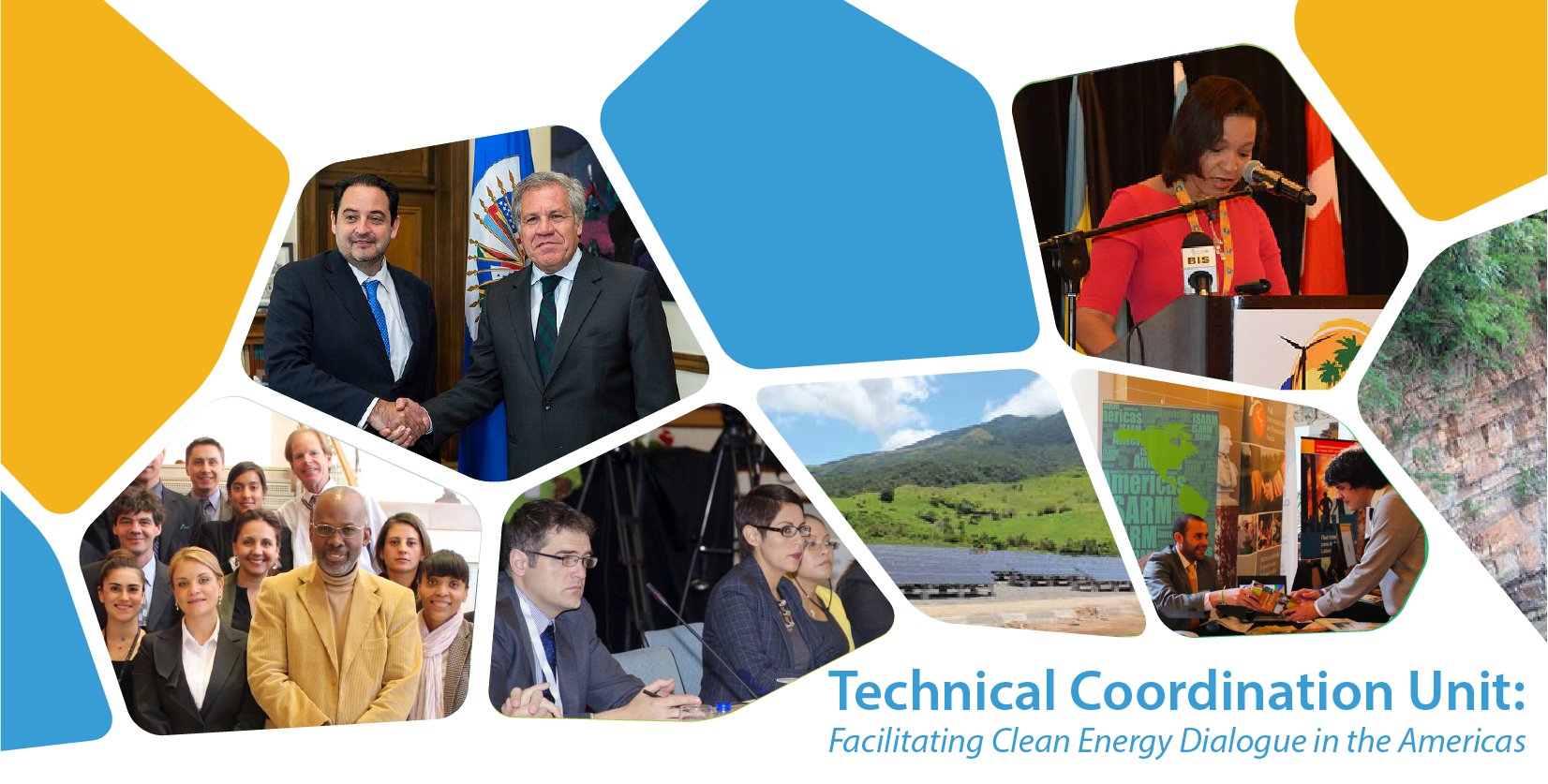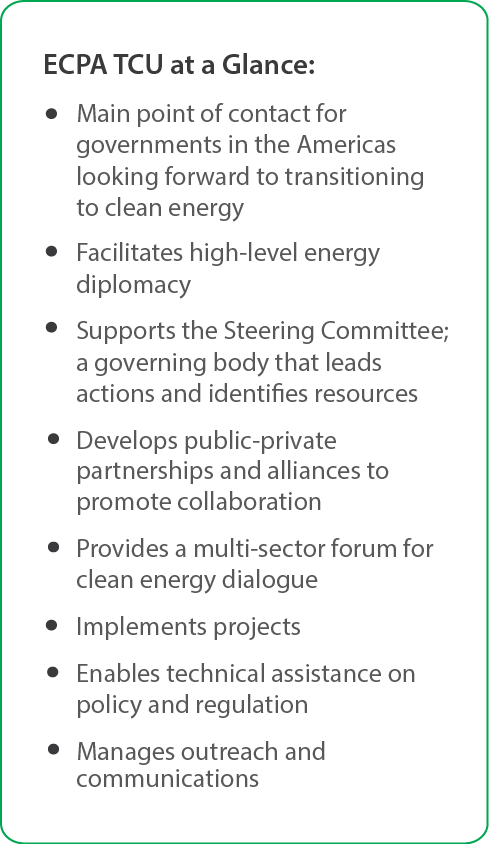

ECPA was announced at the Fifth Summit of the Americas held in Port of Spain in April 2009. Two months later, on June 15-16, policy makers from 20 countries in the region gathered in Lima to discuss areas of cooperation on critical energy issues. The event furthered the dialogue initiated in Port of Spain and identified concrete next steps for cooperation, including the need for the establishment of a coordinating mechanism—the Technical Coordination Unit—that would help consolidate ECPA’s vision, and bring together the countries in the Americas to address shared energy challenges.

Hosted by the Department of Sustainable Development (DSD) of the General Secretariat of the Organization of American States (OAS), the TCU has organized myriad technical and policy events, and is responsible for implementing the Partnership’s communication and outreach strategy. Since its inception, governments were highly receptive of an OAS-led Technical Coordination Unit, granting this mechanism a regional status.
The OAS established the TCU in four phases. Between 2009 and 2011, Phase 1 of the TCU served to develop the building blocks of ECPA, and to position the Partnership as a platform for the advancement of shared sustainable energy goals. During this Phase, the OAS supported a series of country-led initiatives to enable the expansion of renewable energy and energy efficiency markets in the region. In 2012 and 2013, Phase 2 of the TCU focused on scaling-up the actions of ECPA. During this Phase, the OAS advanced the exchange of ideas, best practices, and critical information among stakeholders in the field of renewable energy and energy efficiency. In 2013 and 2014, OAS implemented Phase 3 of the TCU by deploying an aggressive stakeholder engagement strategy which expanded ECPA’s membership and developed the governance structure adopted by the OAS member States at the II ECPA Ministerial held in Merida in 2015. Phase 4 started in 2015, and was instrumental in establishing the Steering Committee, defining the Partnership’s core Guiding Principles, and developing its Action Plan. This phase is characterized by the strong leadership exercised by the Steering Committee and by its Chair, the Government of Chile, and the host of the next ECPA Ministerial to convene in Viña del Mar on September 7-8, 2017. Throughout the implementation of the four phases of the TCU, the OAS was able to strengthen coordination among partners, foster shared leadership, consolidate ECPA’s governance, develop a clean energy Action Plan, identify priorities at the national and regional level, and support high level dialogue.
 View Map
View Map